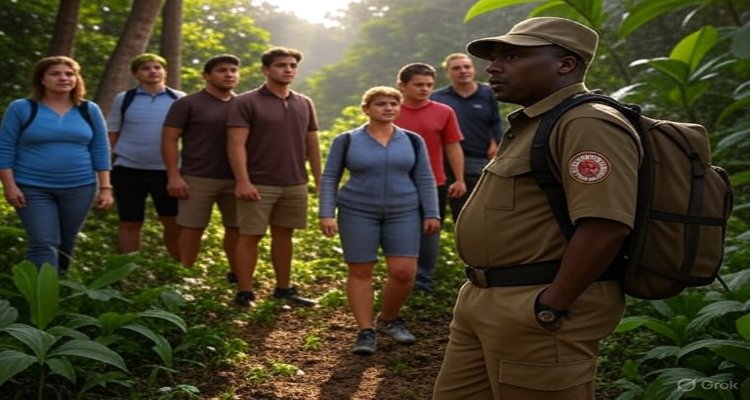Safari Beyond Safari: Wildlife Adventures Reimagined
Wildlife tourism is evolving beyond traditional safaris. Discover how eco-conscious, immersive adventures are redefining our connection with nature.
Introduction: A New Chapter in Wildlife Travel
For decades, the word safari conjured images of dusty jeeps crossing the Serengeti or binoculars fixed on lions at dawn. Yet today, wildlife tourism is breaking beyond this classic model. From walking expeditions with conservationists to night treks under starry skies, a new generation of wildlife experiences is rewriting how humans engage with nature. These adventures go beyond sightseeing—they are about immersion, conservation, and storytelling.
Context & Background: From Hunting Grounds to Conservation Journeys
The concept of the safari originated in East Africa during colonial times, largely associated with hunting expeditions. Over the years, safaris transformed into photographic journeys, celebrating wildlife instead of hunting it. However, as global awareness of climate change and biodiversity loss deepens, travelers now seek more meaningful interactions. This shift is pushing wildlife tourism toward sustainability, cultural integration, and authentic experiences that balance adventure with preservation.
Main Developments: Wildlife Encounters Reimagined
Wildlife travel today is expanding into innovative forms that emphasize participation and respect for ecosystems:
- Walking Safaris – Instead of vehicles, travelers explore on foot alongside expert rangers. This slower pace fosters a deeper appreciation for animal behavior, plant life, and tracking techniques.
- Night Adventures – Torch-lit treks and nocturnal safaris reveal the secret world of owls, leopards, and elusive nocturnal species, offering an entirely different lens on ecosystems.
- Marine Safaris – Coastal nations now offer “blue safaris,” where travelers swim alongside manta rays, track sea turtles, or dive in coral restoration projects.
- Cultural Integration – Indigenous guides increasingly lead tours, blending ecological knowledge with centuries-old storytelling traditions, offering insight beyond science.
- Tech-Enhanced Experiences – Virtual reality binoculars, drone photography, and AI-powered tracking apps are making safaris interactive while minimizing intrusion into habitats.
These reimagined formats highlight a global trend: tourism that doesn’t just consume, but contributes.
Expert Insight & Public Reaction
According to Dr. Leila Harris, a conservation anthropologist at the University of Cape Town, “Modern wildlife tourism is evolving into a partnership between travelers, local communities, and conservationists. It’s less about spectacle and more about stewardship.”
Travelers echo this sentiment. Social media posts reveal growing enthusiasm for eco-conscious journeys. Hashtags like #EcoSafari, #ConsciousTravel, and #WildlifeReimagined trend as younger travelers seek trips that align with sustainability values. Tour operators also report that demand for carbon-neutral and conservation-linked experiences has risen sharply in the past five years.
Impact & Implications: A Shift in Global Tourism
This redefined safari model has far-reaching effects:
- For Wildlife: Reduced disturbance, stronger conservation funding, and community-led stewardship ensure ecosystems thrive.
- For Communities: Local participation in tourism creates economic stability while preserving indigenous knowledge systems.
- For Travelers: The experience becomes more intimate, educational, and transformative—moving beyond passive observation into active engagement.
- For the Industry: Tour operators are rebranding safaris with sustainability credentials, positioning them as essential to eco-tourism’s future.
If adopted widely, these practices may become the standard blueprint for global wildlife tourism—balancing human curiosity with planetary responsibility.
Conclusion: The Future of Wildlife Adventures
“Safari beyond safari” is not just a marketing phrase—it reflects a cultural shift in how we view travel, wilderness, and our role in preserving it. As travelers demand experiences that inspire, educate, and protect, the safari is evolving into a journey of connection rather than conquest.
Tomorrow’s wildlife tourism may not be defined by the animals we photograph but by the ecosystems we help sustain. And in that reimagination lies the true adventure.
Disclaimer: This article is intended for informational and educational purposes only. Travelers are encouraged to research eco-certified operators and follow ethical wildlife tourism practices.











